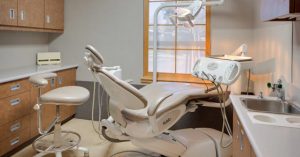The work of dentists is an essential cog in the medical profession. Tooth problems afflict many people in the world, and as such, the profession’s role in alleviating this suffering cannot be taken lightly. Like every medical problem, dental problems are dynamic and keep evolving in numbers and magnitude. It is for this reason that dental conferences and summits are important in enhancing the dentist’s work. For more of the role of these events in dentist’s work and practice, read the article below.
Service Standards
 Dental excellence conferences and summits are important in establishing service standards in work and practice. Service standards refer to the threshold of professional work and care that a dentist is supposed to adhere to in the discharge of their responsibilities. Dental patients and clientele expect total adherence to these standards in their interaction with dentists. Ordinarily, the dentist’s body will provide platforms for reporting non-adherence to take corrective and/or disciplinary action. In a nutshell, conferences formulate and review these service standards to guide members and protect clientele.
Dental excellence conferences and summits are important in establishing service standards in work and practice. Service standards refer to the threshold of professional work and care that a dentist is supposed to adhere to in the discharge of their responsibilities. Dental patients and clientele expect total adherence to these standards in their interaction with dentists. Ordinarily, the dentist’s body will provide platforms for reporting non-adherence to take corrective and/or disciplinary action. In a nutshell, conferences formulate and review these service standards to guide members and protect clientele.
Stamping Out Quacks
Every profession has individuals who purport to be qualified in the trade, and the dental business is no exception. Quacks are a danger to any profession’s reputation and credibility. Dental conferences are vital as they set the minimum qualification for one to practice dentistry. These qualifications are the bare minimum in attaining certification and registration as a dentist. By establishing qualification criteria, conferences, and summits help in stamping out quacks who may be masquerading and giving the noble profession a bad name in the eyes of the public.
Industrial Relations and the Work Environment
 The work environment is essential in enhancing the work and practice of dentists. Dental conferences play a significant role in lobbying and advocating for a conducive work environment and terms of service for its members. The meetings act as a unified voice for seeking better working conditions in terms of dental equipment, remuneration and welfare.
The work environment is essential in enhancing the work and practice of dentists. Dental conferences play a significant role in lobbying and advocating for a conducive work environment and terms of service for its members. The meetings act as a unified voice for seeking better working conditions in terms of dental equipment, remuneration and welfare.